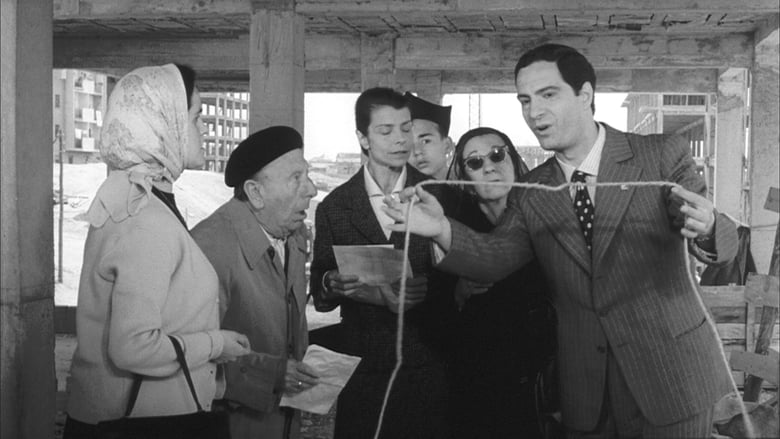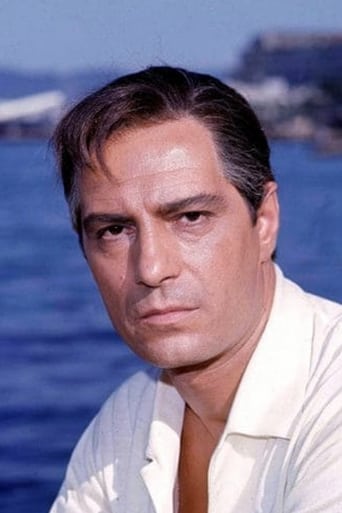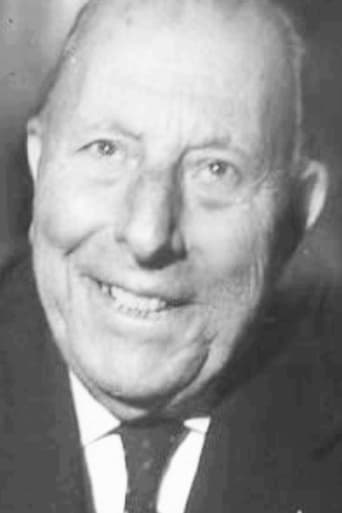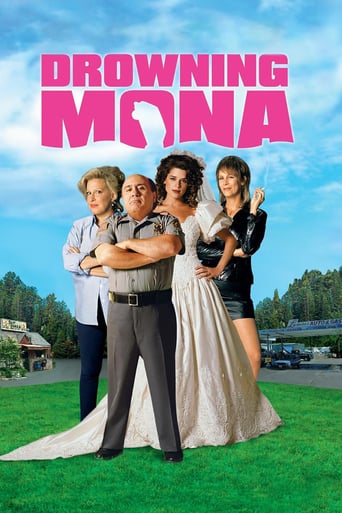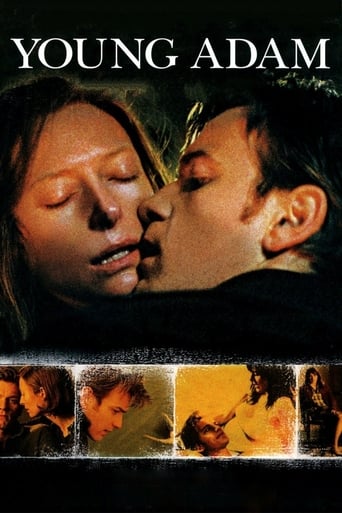The Executioner (1963)
An undertaker gets married to an old executioner's daughter and, although he doesn't like it, must continue the profession of his father-in-law after his retirement.
Watch Trailer
Cast


Similar titles
Reviews
Very disappointed :(
Good concept, poorly executed.
Entertaining from beginning to end, it maintains the spirit of the franchise while establishing it's own seal with a fun cast
Clever and entertaining enough to recommend even to members of the 1%
Spanish writer-director Luis García Berlanga's eighth feature film is a Spain-Italy co-production, stars Italian matinée idol Nino Manfredi as an unassuming undertaker, José Luis Rodríguez, whose marriage prospect is not so encouraging due to his profession. Through chance meeting with a senior prison executioner Amadeo (Isbert), he gets acquainted with his daughter Carmen (Penella), who is also pestered by the same pickle, no one is willing to marry her simply because of Amadeo's job, so the two chime in instantly and apparently it is a perfect match, but soon life put José through the wringer of a series of exigencies (Carmen's pregnancy, marriage and a thorny apartment issue), his ideal future where he can get rid of this disreputable trade becomes more and more unattainable, once he has been pushed to register as a successor of his father-in-law, aka. a new executioner is born.On the horns of a dilemma, José's predicament is wittily delineated through Berlanga's delightful verve, exerts a realistic spin on the irony of life, how one's ideal having been gradually crushed by the twist of fate. Manfredi's interpretation of José affects in earnest, he is spontaneously sympathetic to establish José as a nobody, stuck in the line of work which he doesn't like, exhibits his own foibles through his marriage, and lives by his blind faith that he could still opt out against the worst-case scenario, until his melt-down when the bubble is burst.Veteran Spanish actor José Isbert plays Amadeo enthusiastically, who is decidedly persevering in tricking José to take over his mantle, so as to secure the marriage and an apartment assigned from the government, he is manipulative on top of his goody-goody persona, but we cannot blame him for his simple-mined selfishness, plainly because that's the widespread mindset among most people in the world. As for Emma Fenella, her Carmen is an uncomplicated sort, maternal, down- to-earth and forges strong protection to the men in her life.The satirical connotation of morbidness seeps through the debate over the variations of death penalty (garrotte seems to be the most civilised choice), and a unanimous bias towards a now obsolete vocation. A vignette of José and Carmen's frugal wedding right after a fancier one, and the tour in Palma de Mallorca, where the lovey-dovey luxuriates in a string concert on the creek inside a large cave, exactly in that moment, José's duty call arrives, these are brilliant instances where realism meets cinematic creation, whether they are bittersweet, heartfelt or intriguing, together they bring about vigour and pleasure to the audience and it is a telling testimony of a director's faculty.
Another lesson of Berlanga about how to criticize the society avoiding censorship. "El Verdugo" looks like a comedy, sounds like a comedy, tastes like a comedy... But it is actually a fierce critic of the death penalty. The final sequence of this movie is one of the most brilliant ever (you cannot tell who's the criminal and who's the executioner!!!).And what to say about the great José Isbert?? He was a character himself, with that voice, and that physique. I don't know if he was a genius, I just can say that there will never be another actor like him.Berlanga + Azcona: an unbeatable team.*My rate: 10/10
Like "Bienvenido Mr Marshall", this film earns its keep first of all by being wickedly funny, an achievement that once again depends partly on the director's gift for distilling his somewhat baleful observation of Spanish society into a series of deft, economical verbal and visual gags and tableaux, and partly on the talents of the unforgettable Jose Isbert, who plays, with variations, his inherited role as an apparently humourless old man to whom hilarious situations just casually adhere as he muddles through life. In "Mr Marshall" a sly rascal with a curiously intermittent hearing problem, here he acquires a touch of the wry reflectiveness of the old man whose profession condemns him to virtual social ostracism, who can invite his future son-in-law to "here, put your fingers into this light socket" with all the casual gentility of someone offering a top-up to a glass of sherry.Next to him, and reaching over from comedy towards understated tragedy, Nino Manfredi turns in a flawless performance as the young man who dreams of going to Germany to learn the trade of mechanic, but gets prodded and browbeaten into a hasty marriage, then into accepting the title and benefits of a job he hopes never to have to perform, and then... The way this progression is conveyed is masterly: while he's clearly (and fatally) manipulable (esp. by his wife), we are never for a moment allowed to dismiss, or laugh at, his character as a simpleton, even though we may laugh with uneasy recognition at his clumsy attempts at courtship (distilled in an EXT scene where he first cleans the dog-dirt from his shoe, then invites his beloved to dance, then gets shouted at for "using up someone else's music" and ends up having to provide the music himself by whistling). He is, we decide, a decent human being who mostly tries to stay out of trouble and do the right thing for himself, his wife and future offspring - the true guilt lies elsewhere. The obscure tragedy we see happening is of a man being gradually and remorselessly deprived of his values and self-respect before he's even had time to become fully aware of them or decide how important they are to him. The implied social criticism leading on from that (throttled back, as always, to get past the censors) is fairly obvious.Which leads us to those astonishing final scenes: the fairylit grotto in Palma de Mallorca where a largely tourist audience wait expectantly for some watery spectacle to occur, only to see a surreal tricorned Civil Guard drifting through in a boat and calling out to Manfredi's "Jose Luis Rodriguez" in a stentorian, megaphone-amplified "whisper"; then the scene in which we are offered a crane shot of an unfurnished prison yard with a door in the far corner, towards which we watch Jose Luis being hustled or dragged, weakly protesting, by a mixed contingent of priest and guards, very much as if he himself were the condemned prisoner. There's something so allusively haunting about that shot - whether it's the poignant detail of the dropped hat, whether the stuffing of a fat group of black-clothed people through a narrow door inspires Biblical reminiscences or suggests a birth in reverse - that it alone propels this film into some pretty select company in terms of artistic greatness. But, again like Mr Marshall, this film is so packed with visual and verbal gems that it would take a book, and several dozen viewings, to come anywhere near doing it justice.
Here we have a tragicomedy about executions released in 1963, when executions and censorship did still exist in Spain. How did they do it...? I only can say... using their imagination. It has a really brilliant story, and a screenplay that combines in a so wise way the comic and dramatic/tragic aspects of the story. Also, the actors know at every moment what to do. As a result we find a really funny film, a really sad film... and a perfect recreation of the reaction of common people to a hard and dangerous epoque. A masterpiece in my opinion.


